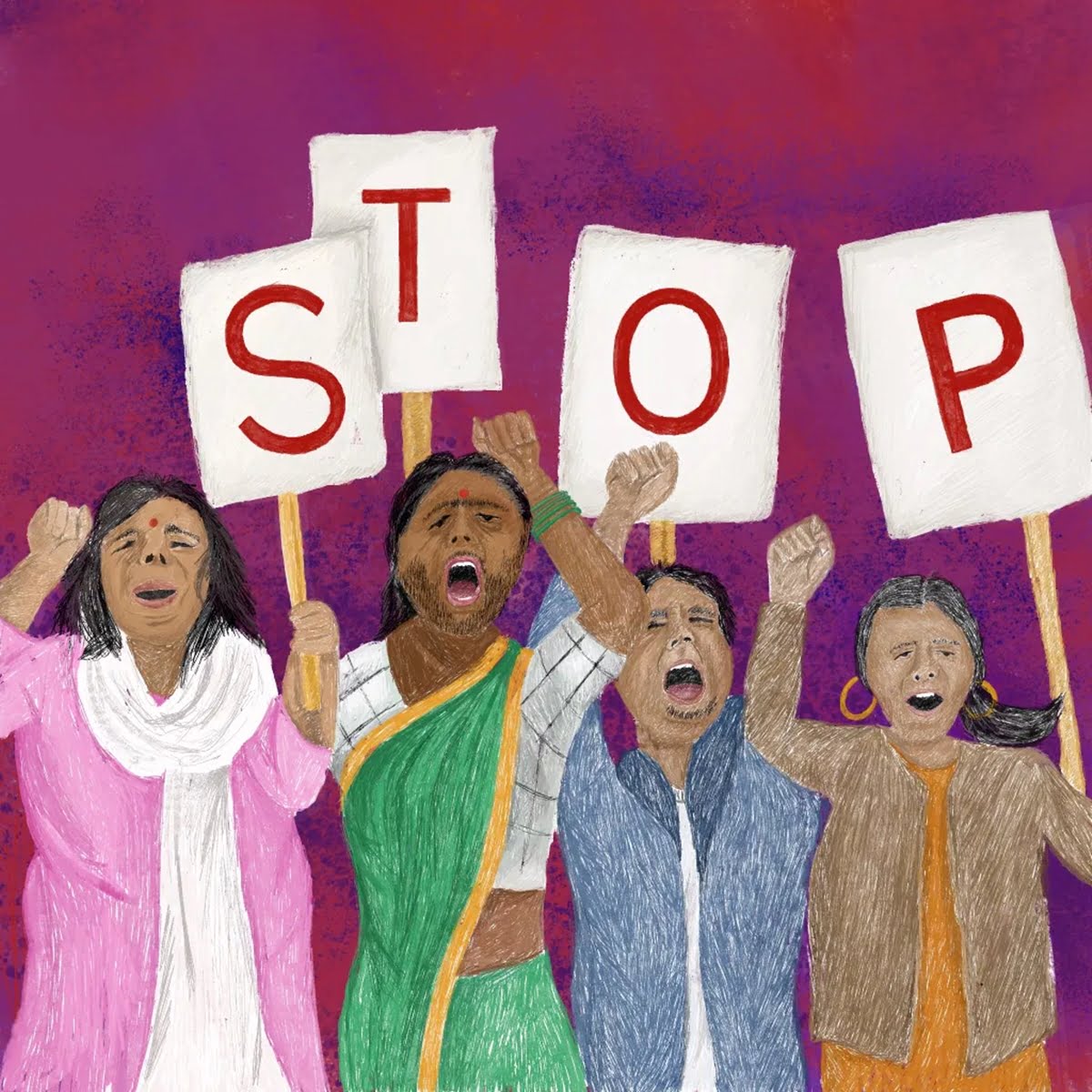At the age of 15, a group of boys in a school bus catcalled me as I was standing at the bus stand for my brother. At 18, a man brushed passed me in a market three times intentionally, touching my arms and shoulder. At 20, a middle-aged man stared at me in the metro till I got down in fear. At 22, a man grabbed my hand in a busy market area and disappeared before I could react. At 23, a group of teenage boys catcalled me as they rode in cycles. Safe to say, sexual harassment is not a concept alien to me, just like how it is not for many others.
I had gone out for an evening stroll. Before you ask me what I was wearing, let me tell you that I was wearing baggy track pants, a tee shirt that hid my enticing body parts, a mask that covered me up till my eyes, my glasses and sports shoes.
At 18, a man brushed passed me in a market three times intentionally, touching my arms and shoulder. At 22, a man grabbed my hand in a busy market area and disappeared before I could react. At 23, a group of teenage boys catcalled me as they rode in cycles. Safe to say, sexual harassment is not a concept alien to me, just like how it is not for many others.
I am a very cautious walker; my eyes and ears always alert. I guess, most women are alert all the time. No, it’s not natural for women. It is only the conditionings and the fear of being violated.
Also read: Are College Fests A Space For Sexual Harassment On Campus?
So, as I was walking, a group of teenage boys pass by me, shouting something which made me uncomfortable. I looked down, and tried to focus my gaze at my steps. I didn’t want to have eye contact with those boys, as I feared the harassment could escalate.
After the incident I furiously walked home, thinking all the way that I would defiantly write angry rants on social media about it. I was anxious, thinking if I should discuss this with my parents. I was surprised at the reaction of my parents. They told me that those boys must have been my 17-year-old brother’s classmates since they saw those boys pass by in cycles only some time ago.
My mother laughed, not knowing what to respond to, “Ma, I was catcalled today”. My father was silent initially. I told them that I will definitely “write” about this in my personal blog.
This is not a write-up to villainise my dear parents. Today’s incident was one of hundreds of incidents that I had decided to talk about. As my anger grew at their reaction and response, I was only trying to find words to make them understand how I felt, there were tears in my eyes and I was only blabbering out inconsequential words. My mother asked me, “Are you sure they were teasing YOU?”, “Are you sure they were not good-humoured teasing?” My father only told me that if I want to write about it then I should, and not nag them with my rants.
The fear of being blamed for being at the receiving end of sexual harassment is further inculcated when such dismissive behaviour is matted out. So, the next I go out for a walk, I should cover more of my body, be invisible or better, not go out at all! If I dared to get harassed, I better not tell anyone about it leave alone reporting it to the higher authorities. That would suit my parents from having any uncomfortable discussions about sexual harassment.
Shaming, questioning and doubting the intentions of the victim is very easy, and is only a misogynistic approach towards sexual harassment.
Shaming, questioning and doubting the intentions of the victim is very easy, and is only a misogynistic approach towards sexual harassment.
At the age of ten, as I hit puberty, my mother did have “the talk” with me about “good touch” and “bad touch”. I am glad she did. But I also wonder why she did not have the same conversation with my brother as well. Till what extend can parents protect their children? They cannot possibly protect me all my life.
An article, ‘Why Are We Still Calling Sexual Harassment ‘Eve-Teasing’ In India?’ published in HuffPost says “There is no separate ‘extreme’ variety of harassment. Harassment itself is an act of extreme disregard for human dignity.”
Being harassed shouldn’t have a degree of humiliation and trauma attached to it; we cannot belittle the trauma of the person just because it must have been, for the sake of argument, a mere “good-humoured teasing”.
Parents often get uncomfortable talking about sensitive issues regarding sexual well-being, harassment and mental health, and I guess that plays a huge role why children avoid such conversations, because in some cases it might do more harm than any good.
Also read: Sexual Harassment In Workplace: What Happens When It Is A Religious Institution
On August 10, 2020 a 20-year-old student died in an accident in Bulandshahr, as she was trying to escape harassers on the road. The question remains, how many should lose their lives while they were running away in fright for their lives, before what is clearly grave harassment, is stopped being dismissed as “good-homoured teasing”?
Swati Baruah is a recent Literature post graduate from Ambedkar University, Delhi. She is interested in pursuing Gender studies and Postcolonial studies for further. In her free time she writes, bakes and daydreams. She can be found on Instagram, YouTube, Facebook and this is her personal blog.
Featured Image Source: Aasawari Kulkarni/Feminism In India




